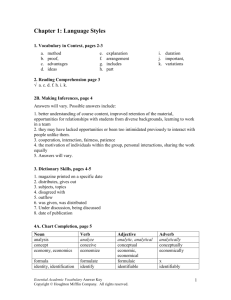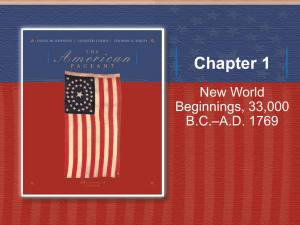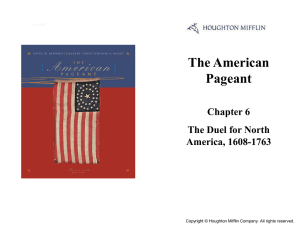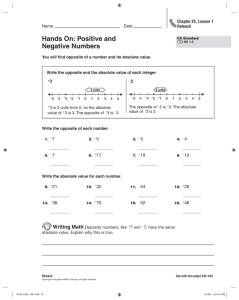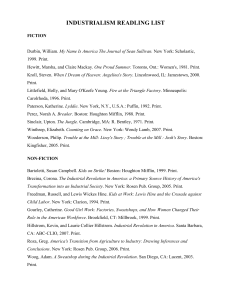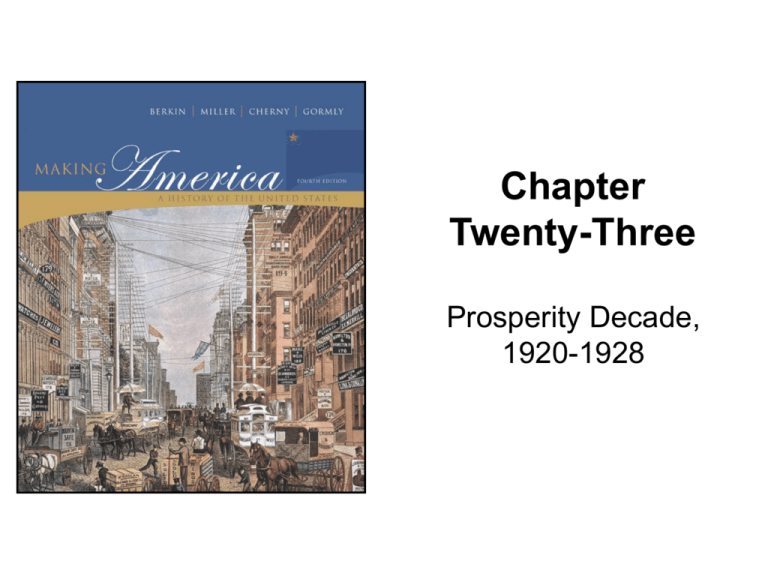
Chapter
Twenty-Three
Prosperity Decade,
1920-1928
Berkin, Making America
Chapter 23
Henry Ford’s innovations
1. depended dangerously on imports from Europe.
2. required government assistance to build his
factories.
3. ended in bankruptcy, thereby bringing on the
Great Depression.
4. made automobiles available to more and more
people.
Copyright © Houghton Mifflin Company. All rights reserved.
23-2
Berkin, Making America
Chapter 23
Henry Ford’s innovations
4. made automobiles available to more and more
people.
Hint: His methods led to lower and lower prices for
cars. See pages 716–717.
Copyright © Houghton Mifflin Company. All rights reserved.
23-3
Berkin, Making America
Chapter 23
Government during the 1920s
1. was strongly pro-business.
2. actively regulated the economy.
3. created many new programs to assist farmers.
4. backed the creation of labor unions in many
industries.
Copyright © Houghton Mifflin Company. All rights reserved.
23-4
Berkin, Making America
Chapter 23
Government during the 1920s
1. was strongly pro-business.
Hint: The Republicans who dominated government
in the 1920s believed, as Coolidge said, that, “the
business of America is business.” See pages
734–735.
Copyright © Houghton Mifflin Company. All rights reserved.
23-5
Berkin, Making America
Chapter 23
The new consumer-driven economy
of the 1920s depended on
1. the continued expansion of heavy industry.
2. cessation of antitrust suits by the government.
3. consumer goods.
4. importing huge quantities of goods from America’s
wartime allies.
Copyright © Houghton Mifflin Company. All rights reserved.
23-6
Berkin, Making America
Chapter 23
The new consumer-driven economy
of the 1920s depended on
3. consumer goods.
Hint: See pages 717–720.
Copyright © Houghton Mifflin Company. All rights reserved.
23-7
Berkin, Making America
Chapter 23
Critics of American culture in the
1920s included
1. manufacturer Henry Ford.
2. intellectuals and writers, many of whom left the
country in disgust.
3. cabinet members Andrew Mellon and Albert Fall.
4. finance companies, alarmed because of the
growth of installment buying.
Copyright © Houghton Mifflin Company. All rights reserved.
23-8
Berkin, Making America
Chapter 23
Critics of American culture in the
1920s included
2. intellectuals and writers, many of whom left the
country in disgust.
Hint: They attacked and decried American culture.
See pages 717–720.
Copyright © Houghton Mifflin Company. All rights reserved.
23-9
Berkin, Making America
Chapter 23
Speculation in the stock market
1. was a criminal activity under federal law.
2. drove stock prices higher and higher.
3. ended when Florida land prices fell.
4. was the brainchild of Secretary of the Treasury
Andrew Mellon.
Copyright © Houghton Mifflin Company. All rights reserved.
23-10
Berkin, Making America
Chapter 23
Speculation in the stock market
2. drove stock prices higher and higher.
Hint: See pages 718–720.
Copyright © Houghton Mifflin Company. All rights reserved.
23-11
Berkin, Making America
Chapter 23
The nonpartisan Farm Bloc
1. unsuccessfully demanded higher tariffs for
foreign-grown produce.
2. urged President Coolidge to veto the McNaryHaugen bill.
3. arose in Congress because the nation’s farmers
did not share in the general prosperity.
4. attempted to revive the Populist Party.
Copyright © Houghton Mifflin Company. All rights reserved.
23-12
Berkin, Making America
Chapter 23
The nonpartisan Farm Bloc
3. arose in Congress because the nation’s farmers
did not share in the general prosperity.
Hint: Overproduction for the domestic market,
coupled with a decline in farm exports, had
plunged farmers into economic misery. See
pages 720.
Copyright © Houghton Mifflin Company. All rights reserved.
23-13
Berkin, Making America
Chapter 23
Los Angeles can be said to have
been created by the economy of the
1920s because
1. the decline in government regulation of business
unleashed investment there.
2. its development revolved around the automobile.
3. it was the center of feverish speculation in the
stock market.
4. many people migrated there from the South and
Northeast.
Copyright © Houghton Mifflin Company. All rights reserved.
23-14
Berkin, Making America
Chapter 23
Los Angeles can be said to have
been created by the economy of the
1920s because
2. its development revolved around the automobile.
Hint: Modern Los Angeles was made possible by the
automobile. See page 721.
Copyright © Houghton Mifflin Company. All rights reserved.
23-15
Berkin, Making America
Chapter 23
The Harlem Renaissance influenced
American culture
1. because of its contributions to fundamentalist
religious thought and practice.
2. by making jazz a central feature of modern
American music.
3. because a growing number of white Americans
were determined to put an end to second-class
citizenship for African Americans.
4. even though many African-American leaders
shunned the artists and writers who participated
in it.
Copyright © Houghton Mifflin Company. All rights reserved.
23-16
Berkin, Making America
Chapter 23
The Harlem Renaissance influenced
American culture
2. by making jazz a central feature of modern
American music.
Hint: Jazz flourished as part of the Harlem
Renaissance and began to influence white
musicians as well. See pages 724–727.
Copyright © Houghton Mifflin Company. All rights reserved.
23-17
Berkin, Making America
Chapter 23
The Eighteenth Amendment
launched the national experiment in
1. women’s suffrage.
2. the income tax.
3. racial equality.
4. Prohibition.
Copyright © Houghton Mifflin Company. All rights reserved.
23-18
Berkin, Making America
Chapter 23
The Eighteenth Amendment
launched the national experiment in
4. Prohibition.
Hint: It prohibited the manufacture, sale, and
transport of alcoholic beverages. See page 768–
769.
Copyright © Houghton Mifflin Company. All rights reserved.
23-19
Berkin, Making America
Chapter 23
John T. Scopes’s trial attracted
attention because it
1. exposed leaders of the Ku Klux Klan as corrupt.
2. pitted fundamentalism against modern science.
3. demonstrated the extent of illegal activity by
bootleggers.
4. focused on Sigmund Freud’s definition of
homosexuality.
Copyright © Houghton Mifflin Company. All rights reserved.
23-20
Berkin, Making America
Chapter 23
John T. Scopes’s trial attracted
attention because it
2. pitted fundamentalism against modern science.
Hint: Scopes, tried for teaching evolution in the
public schools, symbolized modern science.
William Jennings Bryan, for the prosecution,
represented the Christian fundamentalist side that
opposed the theory of evolution. See pages 728–
729.
Copyright © Houghton Mifflin Company. All rights reserved.
23-21

